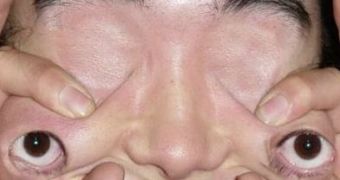Being a freak has its advantages.
You can appear as different, mysterious, or do what the others cannot do.
Now, Professor Marla Sokolowski, a biologist at the University of Toronto Mississauga, revealed an advantage of being different. She found that the gene affecting the foraging behavior of fruit flies has two different versions: one common and another which is extremely rare.
This is interesting for us as the gene is encountered in many organisms, humans included. "There's considerable genetic variation in nature and we haven't been able to explain why it persists, since natural selection ensures that only the best survive. In some cases, individuals with characteristics that differ from the rest of the population are more likely to survive since their rarity makes them less conspicuous to predators. However, to date we haven't understood this type of survival advantage at the level of the gene", said Sokolowski.
These genes suffer a "negative frequency-dependent selection": a rare mutant has a better survival chance, just as a rare strain of the flu virus is more likely to spread through a population that has already developed immunity towards more common strains. The fruit flies present two variants of the foraging gene: the "rover" or "sitter". The rover larvae are more active, moving around more than the sitter larvae during the feeding, exploiting more food patches than sitters do.
So, why did the evolution maintain both of these types in nature?
The research team assessed the survival rates in fly colonies with various ratios of rovers to sitters and different nutrient concentration in their food.
When the fruit fly larvae were competing for food, the best proved that this particular gene variant was the rarest in a certain population: few rovers did better amongst a majority of sitters, and sitters did better amongst a majority of rovers. "If you're a rover surrounded by many sitters, then the sitters are going to use up that patch and you're going to do better by moving out into a new patch. So you'll have an advantage because you're not competing with the sitters who stay close to the initial resource. On the other hand, if you're a sitter and you're mostly with rovers, the rovers are going to move out and you'll be left on the patch to feed without competition", explained Sokolowski. In this case, one variant boosted the survival of the other, like there was no "best" fly type.
This phenomenon could explain why individuals are so different from one to another in most of the species. The team wants to see if this also occurs in the wild. And they would also like to understand how the foraging gene could be linked to food-related diseases in humans.

 14 DAY TRIAL //
14 DAY TRIAL //